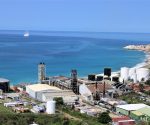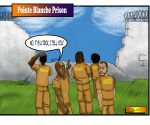Be careful what you wish for

By Hilbert Haar
Independence. That term has been doing the rounds among politicians and among civil proponents of it like José Lake Jr. for a very, very long time. And now independent MP Grisha Heyliger-Marten has lit the fire under this debate again.
Related article: MP Heyliger-Marten calls for independence
Let me make one thing clear: every people is entitled to the right of self-determination. It is an inalienable right that can only be taken away from citizens at gun point. Think Myanmar.
St. Maarten finds itself obviously in a completely different position. It is an autonomous country within the Kingdom of the Netherlands. But how autonomous is our country really? We are under financial supervision and the responsibility for, for instance, foreign affairs and defense are still in the hands of our big brother across the ocean.
Let us not forget how we got there. St. Maarten wanted to become an autonomous country within the kingdom. For decades this desire was treated like the Holy Grail. Philipsburg would become independent from Willemstad. Hurray! Freedom.
But more than ten years of autonomy have not brought our country the freedom it so often dreamt off. On the contrary. We are up to our eyeballs in debt and we would not have been able to overcome the consequences of Hurricane Irma and the COVID-19 pandemic without financial assistance from the Netherlands. We would have been well underway to become a second Haiti.
But still, the feeling of being secondhand Dutch citizens does not sit well with some of our decision-makers. The so-called democratic deficit hurts. That is understandable and in a proper constitutional setup, there is no solution for it either.
The majority rules in any democracy and in the kingdom it is no different. Just look at the numbers. The Netherlands: 17.2 million inhabitants; Curacao: 150,000; Aruba: 110,000; St. Maarten: 43,800; Bonaire: 22,575; Statia: 3,200; Saba: 2,155. Total for the six Caribbean islands: 331,730.
Related article: Eerlijk duurt het langst
In other words: the Caribbean population of the kingdom represents around 1.9 percent of the population of the Netherlands. There is no way any electoral system could give the Caribbean islands a voice strong enough to stand up to the Netherlands.
I think there is also no way an amended Kingdom Charter is able to eradicate the democratic deficit. From that perspective, a call for independence is more than understandable; inevitable is probably a better word to use here.
The road to independence is not all that simple. The parliament in Philipsburg has to call a referendum and a majority of the people has to vote in favor of independence. So why is this not happening?
The first hurdle is the parliament that has consistently failed to call such a referendum. Question: why not? My thoughts about this have not changed. The population of St. Maarten is fractured. There are many different groups and the original St. Maarteners represent around twenty percent. Other citizens are either Dutch, Chinese, Jamaican, Haitian, Dominican and a host of other nationalities [140, Publisher’s note]. Those who have obtained Dutch nationality cherish their Dutch passport. The question is: will these people be prepared to give it up in exchange for a St. Maarten passport? Will the matter of the passport affect the way they would vote in a referendum?
I doubt this very much. Not because I have anything against St. Maarten becoming an independent country but because I get the feeling that most politicians think that there is no majority among our good citizens in favor of independence.
I am not saying that the independence-debate should therefore be put to rest. Not at all. It is good to have such discussions, but one ought to also include alternatives, like a better relationship with the Netherlands. That relationship will remain forever inequal, but it does not mean that our big brother will forever remain deaf to reasonable arguments.
How could we improve that relationship? Two things come to mind. First and foremost: financial responsibility. Secondly: truly good governance on all levels, be it in our ministries, our parliament or our government-owned companies.
Next to that we need a vision for our future. Where do we want to go and how do we want to get there? What are opportunities and what are threats to those same opportunities? Let us be realistic. Our country has a lot of potential and we should not waste it quibbling over issues (like democratic deficit) that we cannot change anyway. (At least: I would not know how, but I welcome brilliant ideas about this topic).
Currently, calling for independence unfortunately smells a lot like the calls for autonomy from our recent past. Remember: an independent St. Maarten will not have an army to impress anyone and it will not be able to count on assistance from the Netherlands when the next natural disaster hits. In other words: be careful what you wish for.

























